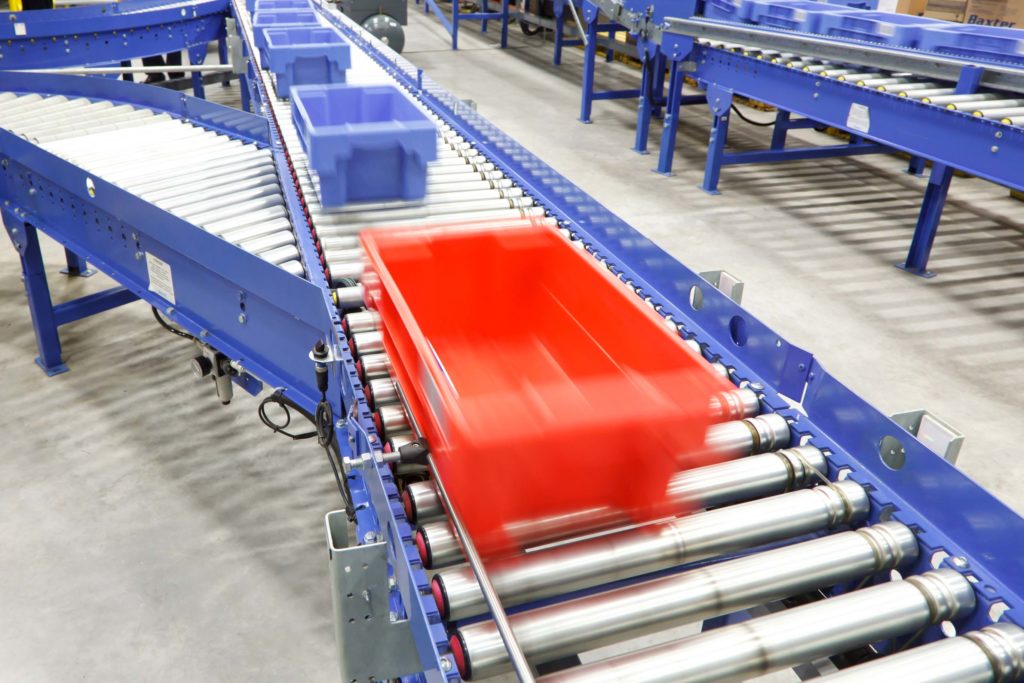Table of Contents
In today’s fast-paced and technologically advanced logistics landscape, Warehouse Control Systems (WCS) have emerged as critical tools for optimizing warehouse operations. These systems serve as the technological backbone that coordinates and streamlines various activities within a warehouse, enhancing efficiency and accuracy.

What is a Warehouse Control Systems?
A Warehouse Control System is a sophisticated software application designed to manage and optimize the flow of materials within a warehouse. It ensures efficient utilization of resources while maintaining high levels of inventory accuracy. The primary role of a WCS is to act as a bridge between higher-level Warehouse Management Systems (WMS) and various automated equipment and systems on the warehouse floor.
Functions of WCS
Real-Time Inventory Tracking and Visibility: WCS maintains accurate inventory records by tracking material movements and updating stock levels in real-time.
Order Fulfillment Management: Efficiently manages order processing, ensuring accurate order picking, packing, and shipping.Integration with Material Handling Equipment: WCS is designed to seamlessly interact with material handling equipment such as conveyors, sortation systems, and automated storage and retrieval systems (AS/RS)
Labor Management and Performance Tracking: WCS helps optimize labor utilization by coordinating warehouse workers with automation systems.Data Analysis and Reporting: Offers valuable insights into warehouse operations, identifying bottlenecks and enabling data-driven decision-making.

How WCS Improves Warehouse Operations
Operational Efficiency: By providing real-time monitoring and data-driven insights, WCS identifies bottlenecks, optimizes workflows, and dynamically adjusts task priorities.
Real-Time Visibility: Offers real-time insights into inventory levels, locations, and demand patterns, enabling accurate demand forecasting and efficient stock rotation. Improved Accuracy: Reduces errors in order fulfillment, enhancing customer satisfaction. Optimized Resource Utilization: Maximizes the efficiency of labor, equipment, and space, automating routine tasks and assigning work based on real-time demands. Scalability and Flexibility: Adapts to changing business needs and accommodates growth.
Integration with Automation Systems
A key strength of WCS is its ability to integrate with various automated systems and equipment. Through standardized communication protocols, the WCS establishes a bi-directional data exchange with these systems. It receives real-time data information, such as equipment status and capabilities, and sends commands and instructions to direct their movements, speeds, and actions. This integration facilitates efficient coordination and control, ensuring synchronized operations within the warehouse.
The Role of Machine Learning and AI
Modern WCS solutions often incorporate advanced technologies like machine learning (ML) and artificial intelligence (AI). These capabilities enable the WCS to learn from historical data, make intelligent decisions, and optimize operations based on predictive models, further enhancing efficiencies and improving decision-making for warehouse managers.
Conclusion
Warehouse Control Systems are indispensable in modern warehousing operations. By leveraging WCS, businesses can streamline processes, enhance efficiency, and achieve greater accuracy in their operations. This leads to cost savings, increased productivity, and improved customer satisfaction, positioning businesses competitively in today’s dynamic supply chain landscape.
FAQs
What does a WCS do?
Optimizes warehouse operations, coordinates tasks, and controls material handling equipment to improve efficiency and productivity.
Difference between WMS and WCS?
WMS focuses on higher-level inventory management and overall warehouse optimization, while WCS specializes in real-time control and coordination of material handling equipment within the warehouse.
Difference between WCS and WES?
WES includes planning functionality not found in WCS, which develops an Optimal Execution Plan based on current conditions within the operation.
For those looking to delve deeper into the world of Warehouse Control Systems, understanding their functionalities, benefits, and integration capabilities is crucial for maximizing efficiency in warehouse operations.



